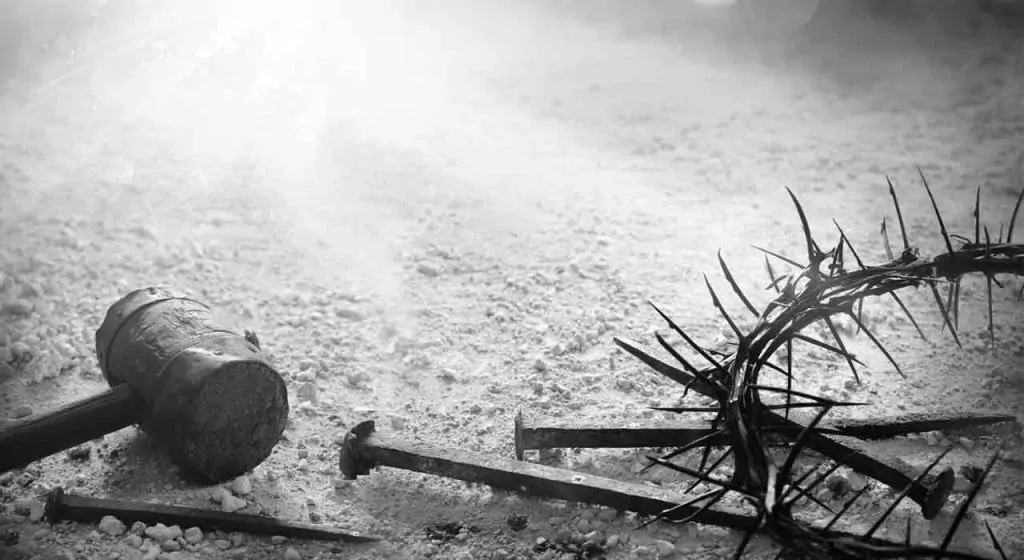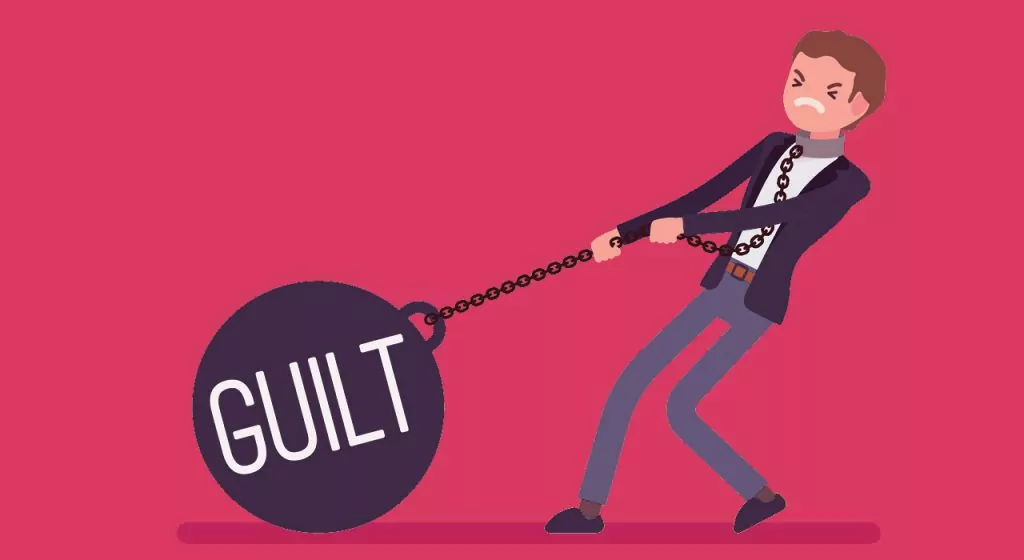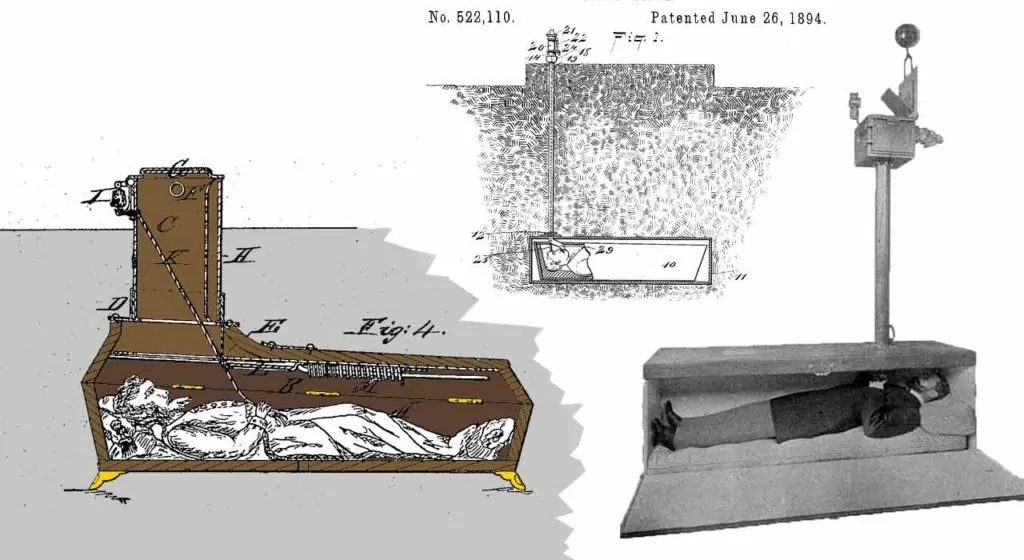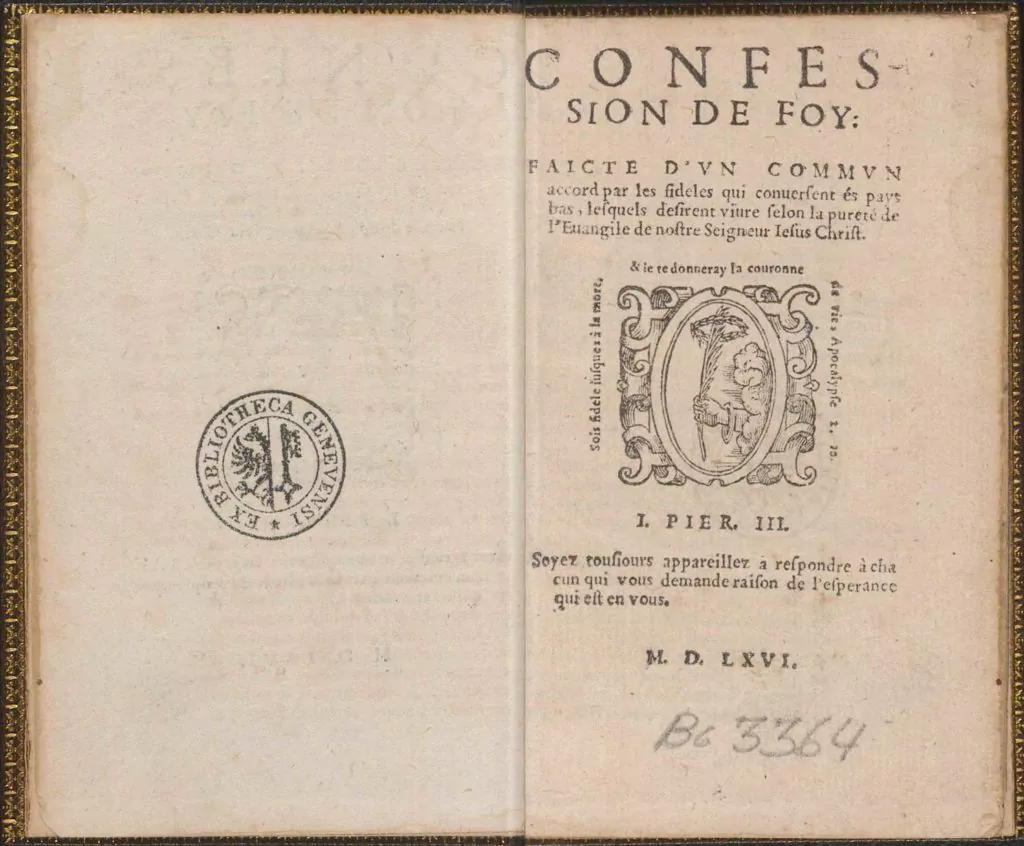The Gift: an allegory of sorts
"Why do you always have that small string wrapped around the top button of your sweater, father?"
The father smiled at his son. "Have I never told you?" he replied.
"No, sir."
The father fingered the small, grey string thoughtfully. It was almost hidden within the confines of the thick wool of his sweater. Then he sat down, held out his arms to the child and took him onto his lap. "Once," he began, "Once..."
Chapter 1 - The eagle awakes
At precisely six thirty, when the sun had already risen, Arend heard the alarm rattle in Cousin Janie's bedroom. He had woken up to it every morning for the past six months. The urgent shrillness traveled insistently and angrily through the thin walls of one of the little houses on Tooker's Road, rudely tweaking Arend's earlobes, making him pull the blanket over his head.
Tooker's Road was not really a road, but a small lane. About twenty-five homes stood next to and across from one another along both sides of a gravel path. The adjoining land had once belonged to a farmer by the name of Tooker. In need of a little money, he'd sold off twenty-five parcels of two-acre lots for four hundred dollars a piece. That's how the houses had been born. Small homes they might be, but they were homes boasting a bit of acreage. Although narrow and barely qualifying as thoroughfare, cars did use Tooker's Road enough so that when you crossed over to the other side you had to keep an eye out.
Arend lay quite still under his blanket, waiting for Cousin Janie to wake up, waiting to hear her trudge across the linoleum tiles of her bedroom towards the bathroom. He had listened for her sleepy footfall every morning this past half year and he continued to be perplexed as to how Cousin Janie could not want to wake up. He was constantly amazed that she would not want to peek out the window to see if the grass was still green; that she would not want to ascertain whether the sky was still as vast and magnificent as it had been the day before; and that her blood was not throbbing with the desire to embrace the very air around her.
Pushing the blanket back down, Arend folded his thin, little arms under his head and stared up at the cracks in the ceiling. One of the cracks ran all the way from the light bulb in the center of the ceiling down to the right corner. It was a crack that split off into other smaller cracks. A fat fly crawled over the naked bulb and buzzed down to the floor. There were many such flies who called this room their home. When the sun shone into Arend's bedroom in the late afternoon, they all vibrated and spun around on the floor simultaneously. Cousin Janie called it their death dance. She vacuumed them up every chance she got, but Arend rather liked the sound of the buzzing.
The tap stammered water in the bathroom. The yellow faucet only produced thin trickles of water at intervals. It was enough though, to fill cupped hands so that you could splash wetness onto your face and sputter into a towel. He could imagine Cousin Janie standing on the bathmat in front of the oval sink, shivering in her blue nightie. Grinning, he sat up, turned around onto his knees and stuck his head under the green curtains which hung just behind the iron headboard of his bed. There was a robin on the lawn. It was pulling hard at a worm.
Arend itched to go out. He didn't really know what it was he desired to do. Just to go out would be enough. He ached to hear the birds singing their cheerful, early songs in the tree tops; he wanted to feel the dew wet his feet; and he yearned to feel the smooth blades of the lilac bush leaves between his fingers. Sighing deeply, he leaned his chin on the palm of his right hand. Cousin Janie's car stood on the driveway. It was an old, blue Pontiac and rust had eaten away a great deal of the body. Sometimes she had trouble starting it and then she would grumble because the bus was the only other recourse to get to work. The problem was that she had to walk a half mile towards the city bus stop and in Cousin Janie's high heels, that was no picnic.
The tap stopped running. A few minutes later the toilet flushed. Arend lay back down. It was only a matter of a few minutes now before Cousin Janie would pass his bedroom, calling as she passed to tell him that there were corn flakes on the counter and could he please clean up afterwards and could he remember to peel potatoes for supper tonight? Yes, he nodded to himself, for had he not always remembered these things in the time that he had lived here? Always was a very long word. There was a time, he pondered, as he folded the thin arms under his head again, a time before always. Cousin Janie was not really and truly his cousin. She was his mother's cousin and actually she had not really known his mother that well. And his father... well, he did not like to think of his father.
"Arend," Cousin Janie's voice startled him, even though he had been waiting for it, "Arend, the cornflakes are on the counter. Please remember to clean up after you eat and please remember to peel the potatoes for supper tonight."
"Yes, Cousin Janie."
Arend grinned at the cracks in the ceiling. A few minutes later the side door opened and closed, the screen slammed shut, and he could hear Cousin Janie's footsteps patter down the steps and crunch on the gravel as they headed for the car. Then the car door opened and closed, and a minute later, after a bit of coughing, the car started. Sighing in relief, Arend resisted the temptation to peek out the window again.
It was truly the beginning of his day now. Lithely he swung his feet over the edge of the bed even as the car wheels ground over the fine stones of the driveway. Sitting up, he took off his pajama top. Reaching for his shirt, socks and pants, he scooted off to the bathroom. The blue linoleum was cold under his bare feet, but that was no matter. After he had splashed himself in the face and dried off with a clean but hard hand towel, he pulled on his cotton tee shirt. It was a black tee shirt and underneath the crew neck a picture of Davy Crockett, gun in hand, stared out courageously from his small chest. He loved that tee shirt and Cousin Janie literally had to sneak it off his bedside chair for washing when he was asleep or he would wear it all the time. He'd seen the movie "Davy Crockett, Indian Scout" at school the last day before the Christmas holidays, just before he'd moved in with Cousin Janie. And ever since he'd seen it, he'd had a keen desire to be an Indian scout himself.
School was finished for the year now and there would be no bus to pick him up today. He was his own master and could truly do what he liked. Cousin Janie had been insistent that he stay within distance of the house while she was at work. He had faithfully promised her that he would, clearly envisioning within his mind that he could walk a long, long way into the field behind the house and still see the house, and that there was a great deal of exploring he could do while keeping that promise.
Chapter 2 - Petrus & peanut butter
He cleaned up as tidily as he could after eating breakfast. Diligently wiping the counter clean after he washed his plate and spoon and cup, he even swept the floor with the broom. Surveying the kitchen afterwards, he nodded, quite pleased with himself. Why Cousin Janie complained about housekeeping was a mystery to him. There was nothing to it.
He would leave the potato peeling until later. First he had to get out and see if there were any tracks in the field. It had rained last night and surely if deer had come around, there would be tracks. He had marked their hoof prints before, indented large as life between the wide and growing rows of corn. But today, on this first day of his holidays, he would be able to follow those tracks, follow them to wherever they led.
Making himself a peanut butter sandwich, he scouted around the cupboards for something in which to wrap his lunch. Finding nothing, he decided the sandwich would have to fit into his back pocket.
Then he was off, the screen door slamming shut behind him.
The next few hours were blissfully wrapped up in the knowledge that freedom was his: freedom to catch tadpoles in the small creek between Cousin Janie's house and the farmer's field; freedom to climb an oak tree and scan the horizon for Indians; freedom to lie down between the corn stalks watching their green leaves gently sway in the breeze; and freedom to lazily observe black beetles lumber past dew puddles on the ground. And then, strangely enough, Arend fell asleep.
****
"Hey, boy! Hey, boy, what are you doing here?"
Arend groggily opened his eyes. He thought he was waking up in his bedroom and tried to decipher the cracks in the ceiling. But all he saw were the cracks in a face, an old, old face.
"Hey, boy!" the voice repeated, "Wake up!" Then the face smiled and one of the eyes in the face winked at him. "Are you running away from someone and hiding?"
Still lying down, Arend shook his head even as he began the process of sitting up. "No," he said.
"Well then, what are you doing here?"
"School's over and I'm exploring," Arend explained.
"Exploring?" He was a tall, a very tall man. His bony jaw jutted out and his eyes, although one of them had just winked cheerfully, were a piercing dark blue. "So you're not running away?"
"No, I'm not," Arend answered again, and then, because he had been told by Cousin Janie over and over to speak with two words, he added, "Sir."
"Well, I am." The old man promptly sat down next to him, put a finger on his lips and motioned that Arend should keep quiet. The boy was not afraid but rather fascinated. "She'll be shouting in a minute. Don't say anything, mind."
Arend nodded and sure enough, a few moments later a woman's voice rang through the air. "Petrus! Petrus, where are you?"
The man poked Arend with his elbow and gleefully whispered, "Didn't I tell you she'd shout?"
"Petrus, come out this very minute. I'm getting angry!"
"Sometimes Cora gets so angry," the man confided softly to Arend's left ear, "that she turns redder than a tomato. Sometimes I think she might explode."
This so amused him that he began to chuckle and had to clap his hand over his mouth to stifle his laughter. Arend couldn't help it, but he began to grin. They sat in silence for a few minutes while the woman's voice kept on calling and calling. Finally a screen door slammed shut. Arend presumed Cora had given up and gone inside.
"The only thing is," the man went on, sobering up, "I'm so hungry. I think lunch time is soon and Cora does make a good lunch." As he spoke, his face fell.
Arend turned onto his knees and put his hand into his back pocket. The peanut butter sandwich was still there. It had stretched out flat, like a square pancake. He extracted it and held it in front of the old man. "Peanut butter," he whispered, "and you can have half if you like." To show that he meant what he said, he tore the sandwich in two and held out one half to the man.
A smile twinkling in his eyes again, Petrus regarded Arend with joviality and readily accepted the half proffered to him. "You are my friend, and friends give their names. What is yours?"
"Arend."
"Mine is Petrus." Contentedly Petrus took a bite from the bread and began to chew. Suddenly a look of apprehension crossed his face. Taking the half-chewed bread out of his mouth, he put it on his lap.
"I forgot to pray," he said.
"Pray?" Arend repeated.
"Yes, don't you pray?" Petrus didn't wait for an answer, but folded his hands and respectfully recited, "Lord, bless this food for Jesus' sake, Amen."
Satisfied, he popped the bread back into his mouth and resumed chewing. But he regarded Arend carefully as he chewed. "Don't you pray for your food?" he asked, his mouth full.
"I don't know how." Arend truthfully replied.
"Well, you fold your hands and ask God to bless your food. Unless, of course," Petrus added, as he took another bite, "you are going to bed. In that case, you ask Him to take care of you during the night and," he went on as he took another big mouthful, "you also ask Him to forgive your sins for Jesus' sake."
"Oh," Arend said, not understanding exactly but rather taking it all in as if the teacher at school were explaining the new sound in a word.
"So you try it," Petrus encouraged, "Just fold your hands and I'll help you."
"Cousin Janie doesn't pray," Arend whispered, beginning to feel a little uncomfortable, "and I don't know God."
Petrus' eyes opened wide at this revelation and the grooves in his forehead deepened. He said nothing, but took another bite. It was his last bite. "Well," he finally commented, swallowing the oddment, "if you're not going to pray for your food, you may as well give me your half of the sandwich. It's better, I think, for me to eat it because I prayed, and you didn't."
"Does it taste better when you pray?" Arend ventured to ask.
"Yes," Petrus confidentially answered as he took the other half out of Arend's hand, "much better."
They sat for a while in silence, Petrus chewing and swallowing assiduously. Then Arend asked, "Is Cora your mother?"
This set Petrus off into gales of laughter, almost choking on the peanut butter. "My mother?" he finally managed to gasp, "My mother?"
"Yes," Arend replied, "isn't that why she is looking for you?"
"If she was my mother," Petrus explained, savoring his last bite, "I'd have to do what she said. I'd have to come. But she is my sister, so I don't have to do what she says." They sat for another long while in silence, Arend stealing glances at his companion, wondering who he was and why he did not want to go and see his sister.
"You know," Petrus eventually spoke, licking his lips, "I'm still hungry. I think I'll go now." He stood up. His tall frame was twice that of the growing corn. Without any further ado, he took several strides through the cornfield towards the ditch. Reaching that, he crossed a small bridge leading to a grass backyard. Then he stopped, turned around, and called back to Arend. "Do you want to come, Arend? Do you want to come to my house and have some lunch too?"
The boy had stood up as well. He was quite famished, his sandwich was gone and, more importantly, he was suddenly lonely. He could see Cousin Janie's house clearly outlined to the far left. He was definitely still within the bounds of the promise he had made her. "All right," he answered Petrus, walking toward him, "I'll come to your house for lunch."
Chapter 3 - Beginnings
It was a small house - white with black shingles on the roof and black shutters on the window. Situated just a bit farther down the road than he traveled on the school bus, Arend hadn’t been aware of it. Jumping the ditch rather than using the minuscule bridge, he landed on the grass with a thud before running to catch up with Petrus. "Won’t Cora mind that I come for lunch?" he asked, a bit anxious about the voice that had called so insistently for Petrus to appear.
"No, she won't."
"Will she still be angry that you didn't come?"
Petrus stopped dead in his tracks and looked at Arend. "She never gets angry in front of company - and you are company."
He grinned and held out his right hand to Arend. Arend was about to take it when the old man suddenly bent down and, putting his hands under Arend's shoulders, lifted the boy onto his neck. "Now I am really tall." Petrus pranced around on the gravel stones of the driveway. Arend clung to the grey head, half afraid, half excited.
"Petrus, put that boy down!" Both looked towards the door of the house. It was open and a small woman stood in its frame. "Put that boy down right now and come in, Petrus!"
Arend supposed that the woman must be Cora. He felt Petrus' hands reach up for him and gently lift him down to the ground. Then one of those hands took his own and pulled him along towards the door. "This is Arend, Cora. I found him in the field."
The same piercing blue eyes that graced Petrus' face, were in Cora's - only hers were a lighter blue. "Hello, Arend."
"He's hungry, Cora. I ate his lunch."
"Well then, he'd better come in for a bite to eat, hadn't he?"
There was soup, cornbread and a cup of milk. And if that was not enough to make a belly stuffed, there was also a jelly donut on a stone plate for dessert. Petrus had explained in a rather matter-of-fact way that Arend did not know how to pray and Cora had not said anything about it. But after the meal, when Petrus yawned, appearing rather drowsy with the weight of a double lunch in his stomach, she had taken out a book.
"Are you going to read a Bible story, Cora?" Petrus asked.
"Yes, I am. Why don't you lay down on the couch for a snooze and I'll read out loud. You can listen with your eyes closed."
Petrus obeyed with alacrity and Cora sat down at the kitchen table next to Arend. "Have you ever read from the Bible before, Arend?" He shook his head and Cora smiled. "Well, then it's about time you heard about the very beginning of all time."
She opened the Bible and Arend heard, heard for the first time in his life, the words, "In the beginning God..."
Now there is within every soul on earth the knowledge of eternity - and so this knowledge was also lodged deep within Arend's soul. But when the window of one's soul has been covered over with the dirt of birth for years, this is hidden. But the breath of the Word can blow away that dirt. As Arend listened, the words "In the beginning God..." were blown so violently across his heart that he caught a glimpse, a glimpse of eternity.
"What is the beginning?"
Petrus had begun snoring lightly and Cora absently smiled in the direction of the couch where her brother lay sprawled out. "The beginning," she repeated, "Well, Arend, the beginning is when God was and we were not."
"Where were we then?" And, after a moment he added, "And Who is God?"
If Cora was surprised at his naked ignorance, she did not show it. She merely answered, "God is the One Who made you and me and Petrus."
"And Cousin Janie?"
"Everyone, Arend. God made everyone."
"How did He do it?"
"By speaking."
"By speaking? You mean by talking?"
"Yes."
Arend was silent. He had never heard this before; he had never thought of this before; he had never contemplated the fact that he came from somewhere and that someone had made him. His mind briefly wandered to his mother and father. "Is God still alive?" he asked.
"Yes," Cora answered quietly, "He surely is. He was always alive. He is alive now and He will always be alive."
Arend thought about this for a moment before responding. "My father and mother died."
"Did they?"
"Yes."
Cora said nothing else but waited patiently. There was quiet for another minute before Arend went on. "My Mom, she died when I was born. I didn't know her, but Cousin Janie says she was nice as far as she can remember. And my Dad, he had an accident. He was riding his bike on the road on his way to work and a truck went by and a piece of his coat got caught in the wheel of the truck or something like that. And he was dragged and then he died."
"I'm sorry."
Arend's words had come out in a rush. He didn't know why he had told Cora these things. He had not even spoken to Cousin Janie about what had happened to his Mom and Dad.
"You must miss your Dad."
Arend stared past her to where Petrus was peacefully splayed out on the couch. He did not really miss his Dad. What he did miss was the sense of belonging to someone. His Dad had never spoken much with him and had often gone out at night, but his Dad had been the person with whom he had lived. There had been foster homes, a lot of foster homes, in the last two years. And he had never stayed anywhere longer than a few months.
Cora put the Bible down. She stroked Arend's head. "I'm glad you met Petrus," she said, "because Petrus needs a friend. I hope you can come over often."
"Petrus is old," Arend said, looking up at Cora and pulling away from under her hand.
"Yes," she answered with a smile, "but I think you will still find him a friend."
"Why does he ...?" Arend stopped, unsure of how he could ask why Petrus was different, was rather odd in the way he spoke and behaved. But Cora anticipated his questions.
"Petrus had an accident a few years ago. He was a farmer and a good farmer. He knew everything there was to know about farming. But a loose beam from the barn gave way and fell on his head. It knocked him unconscious. We thought he might die. But eventually he did wake up and he woke up the way that he is now. He woke up like a child, but a child whose knowledge and faith often puts others to shame."
Arend did not comprehend everything Cora told him and reacted only to the obvious. "What happened to his farm?" he wanted to know.
"Well, my son, who was working for him at the time, took it over. He runs it now."
"What is his name?"
"Andrew Peter."
"Why don't you and Petrus live at the farm with Andrew Peter?"
"Because sometimes Petrus doesn't see danger and runs after the tractor or goes into the bull pen by himself. He has forgotten many things about farming."
Arend nodded. He understood that part. He settled back in the chair as Cora returned to the Bible reading. "In the beginning God.... created the heavens and the earth," and, "Then God said: 'Let there be light.'"
And Arend listened.
Chapter 4 - A good deal
That evening after supper, the child related the events of his day to Cousin Janie as she was sitting on the couch with her feet up. It was tiring work, she said, standing up as a teller at the bank all day and her feet desperately needed a rest. Cousin Janie was a cheerful, very direct person, a person who generally said what she thought.
"Well, Arend, little cousin," she remarked, her hands cupped around a mug of coffee, "I gather from what you are saying, that I might not have to worry about you being alone all day after all." And that was the truth. She had worried about Arend being home alone all day.
"Cora's going to teach me how to play checkers and parcheesi," Arend further informed her, "and read to me. She has a Davey Crockett book too. And Petrus is going to show me how to shuck corn and hoe the garden and he might even help me raise chickens or rabbits."
Cousin Janie sat up, setting her empty mug on the coffee table. She regarded Arend thoughtfully. "It sounds like a busy summer for you, little guy. But I think I'd better go over there and make sure that you won't be a nuisance - that you haven't misunderstood."
"Cousin Janie," he said, ignoring her statement for the moment, as he watched her stretch her arms over her head preparing to stand up. "Cousin Janie, did you know that God was in the very beginning? And that He made us?"
She did not answer but looked at him rather strangely, her arms dropping down to the couch.
"And I wouldn't be a nuisance," Arend went on, going back to her previous caution, "I really wouldn't." The last words came out rather vehemently.
"I know," Cousin Janie responded soothingly, "but just in case you misunderstood, I think I'll pay them a call. Why don't you get ready for bed and I'll be back in a jiffy to tuck you in."
Arend sighed. What if Cora and Petrus didn't like Cousin Janie? What if she spoiled things for him? But when she came back some twenty minutes later and sat on the edge of his bed, she had a smile on her face. "It looks like it's a deal, little cousin of mine," she said, "Cora's happy to have you come for lunch every day and to have you spend as much time as you like over at her place."
Arend wiggled his toes under the covers and yawned simultaneously. He felt good - the kind of good you feel when it's your birthday the next day and you know there's a present for you in the living room. Once, three years ago, his Dad had actually remembered that he was going to turn four. He had set a present, elaborately wrapped, on the couch. Although Arend had barely dared surmise that the present was for him, he could not imagine who else it could be. His Dad had nodded almost imperceptibly when he had asked. From that time until bedtime that day, he had felt as if there was another person in the living room. It had been that big! He had woken up in the middle of the night. The temptation to get up and look at the present had eventually forced his feet out of bed. The moon shone in through the apartment window and had guided his steps into the living room. He had stood in front of the couch and stared. Then he had reached out and touched the wrapping - touched it ever so gingerly.
"What are you doing out of bed!"
Startled he had turned around.
"I go to the trouble of buying you a present for your birthday and you, you sneak out of bed."
"No, Dad!" Hands now dangling dejectedly at his sides, he had begun to walk backwards towards the door of his bedroom. As he lay shivering under the covers, he heard his Dad pick up the present. The paper crackled. Then his father's door closed. The next morning the present was gone and to this day he did not know what it had been; to this day he did not know if there had actually been something inside the wrappings. Perhaps there had been nothing.
"So even though I know you don't intend to make a nuisance of yourself," Cousin Janie's voice broke into his thoughts, "be sure to help whenever you can. Offer to sweep, do dishes or just ask what Cora would like you to do. And never touch anything that doesn't belong to you."
He shook his head vigorously. "I won't, Cousin Janie. I would never...." and then he stopped.
It was a good summer, a great summer and, comparatively speaking for Arend, the best summer he'd ever had. He learned how to play checkers, parcheesi and horseshoes; he was instructed on the intricacies of weeding, hoeing and podding peas; and Cora unwrapped Bible stories for him each day. Together with Petrus he fashioned two wooden cages, and when they were finished, Andrew Peter, Cora's son, brought over three rabbits and five chickens, animals which he had bought at the local market.
"Now you be sure to help my Mom in the garden all summer," Andrew Peter sternly admonished when he dropped the animals off, "and I'll consider that payment. Is it a deal?" But he had not admonished so sternly that his eyes had not smiled. Andrew Peter and Arend had shaken on it. Andrew Peter was a tall fellow, not unlike his uncle. In his thirties, he was blond, lanky and clean-shaven. And his face held the same pale blue eyes that his mother had.
"He's a good farmer," Petrus said to Arend once, "I wish he were family."
"He is your family, Petrus," Arend replied, "Don't you remember? He's your nephew."
"What's a nephew?"
"Well, a nephew is ... is ... family."
"Are you family to me, Arend?"
"Well, no." The boy shook his head as they spoke.
"Are you family to anyone?"
"Well, to Cousin Janie, sort of. She was my Mom's second cousin?"
"Well maybe you can try to become a first cousin. Do you have to study for that?"
Arend grinned. Petrus grinned too. "Was that funny, Arend?"
Arend didn't answer.
"I hope you stay my friend, Arend." The old man patted him on the back as he spoke. They were cleaning out the rabbit cage.
"I will, Petrus," Arend promised, "but in September I have to go to school and then I won't be able to visit as much."
"I'm so glad that I found you in the field. I think that you were a present to me hidden in the corn."
"Yes," Arend answered, "I'm glad too, but Petrus, in a few weeks I will have to go to school."
Petrus now stopped pushing the grass through the wire enclosure and turned his face toward Arend.
"School?"
"Yes."
"Why?"
"Well, because you have to go to grade two when you're seven and I'm seven."
"Well, maybe I can come and visit you at school? I'm seventy and it's my birthday in October."
Arend envisioned Petrus cramped into a small desk in his classroom and grimaced. He looked at the old man doubtfully.
"Do you want to go to school?" Petrus went on.
"No!"
"Well, then don't go. Stay here with me."
Arend tugged at some straw and wrinkles appeared in his smooth forehead.
"They make fun of my name in school, Petrus. At least they did last year when I was in grade one."
"Fun of your name?" Petrus was incredulous and clapped his hands together in surprise. Pieces of straw left his sleeves and danced through the air. "You have a fine name. Arend is a good name!"
"Maybe it is," Arend replied slowly, "But the kids said, 'Arend. Aren't you here? Aren't you there? Arend isn't anywhere'. And then they all laughed."
Petrus clapped his hands together again as if to reprove the teasing children. His tall frame backed away from the rabbit coop and then he spread his arms out wide. "Arend means eagle. Have you never seen an eagle?"
"No."
"They are great birds - really big birds. And eagles are in the Bible too."
"In the Bible?"
"Ask Cora." Petrus' attention was diverted by the big doe. She was heavily pregnant and he carefully bent down to peer at her nest, stuffing some more grass into the enclosure, stuffing it right next to the would-be mother. "Soon we'll have baby rabbits, Arend."
Chapter 5 - Friends indeed
Arend wished a few weeks later as he lay in bed, that his name had been that of another bird - a bird such as Hawk, or Robin, as in “Robin Hood,” or something like that. But there had been a grandfather in Holland on his mother's side – a grandfather for whom he had been named. But Arend did mean eagle. Petrus had said so and Cora had confirmed that it was true.
Tomorrow school started. Cousin Janie had surprised him with a lunchbox sporting the picture of Davey Crockett. Last year he had carried his lunch in a paper bag. Cousin Janie had also taken him to the store and had bought him two new shirts and a pair of pants. Cora had knitted him a thick blue sweater and Petrus, not to be outdone, had whittled an eagle out of a piece of wood. "It fits into your pocket," he'd said, "and the teacher won't know it's in there."
"Petrus," Cora had chided, "Arend isn't to hide anything in school."
"That's true," Petrus had answered, his eyes twinkling, "and that's why I'm going to keep it in my pocket. Now I have an eagle in my pocket. I have you in my pocket, Arend. And you're going to stay there. I just thought you'd like to know."
He'd emptied his pocket on the living room floor displaying a stone, a small, oddly-shaped stick, a blue jay feather and a dried-out dandelion. The eagle lay between these things. Arend smiled in the dark. It was, in a strange way, good to know that he was in Petrus' pocket.
Things at school went much better the next day than Arend had expected. Although he found himself rather lost in the good-sized class of twenty-five rambunctious grade two, three and four students, he was not as scared as he had thought he would be. The teacher, Miss Wilcox, was pretty and she had each new grade two student take a turn to introduce him or herself.
"I'm Billy Barber and my dad is a farmer," the boy in the desk next to Arend's spoke up forcefully.
"What kind of farm does he have?" Miss Wilcox asked.
"A pig farm."
"A very fine thing to have," she smiled, "because ham is delicious to eat. You must be proud of your Dad, Billy."
Billy sat down grinning. The next child was a girl. She stood up but her head was down. Her name was Isabel, she told the class with a shaking voice, and she had seven brothers and sisters. She sat down again and blushed. Miss Wilcox replied that she hoped she might meet them sometime. It was now time for Arend to stand. Isabel's evident nervousness had calmed him. He had rehearsed his introduction a few times inside his head as other children took their turns. He rose, leaning on his desk with his right hand.
"My name is Arend," he enunciated in a clear voice, "It means eagle and this name is in the Bible."
Miss Wilcox was taken aback for a moment, but then responded. "Arend is an unusual name. What country does that it originate from?"
"Holland."
"Indeed? Thank you for sharing that with us, Arend."
Billy glanced at him from across the aisle. "Want to come to my house sometime, eagle?"
At recess, as if by prior agreement, the boys gathered at one end of the schoolyard and the girls at another. The grade four boys started a baseball game and allowed the younger grades to be part of the teams. Arend was picked to be a leftfielder. He enjoyed it especially when Henry, one of the older boys, commented that he ran pretty fast for a grade two-er.
A month and a half after school started, Cousin Janie slipped on the porch as she left for work in the early morning.
She had called out the usual admonitions to Arend and he heard the screen door slam shut as she left for work. Her initial steps down the porch sounded normal. Then her heel slipped on a thin layer of frost coating one of the cracks on the wooden steps. October had begun chilly and the nights were below zero.
Arend heard the noise of the fall. Still in bed and contemplating whether he would be allowed to bring one of his rabbits to “show and tell,” he immediately sat up, turned onto his knees and put his head between the curtains. Cousin Janie lay sprawled out in front of the stairs, half of her body stretched out on the gravel driveway. She was not moving. Arend jumped out of bed, raced through the house and catapulted out the front door in a flash.
"Cousin Janie!" There was no answer even though he called her name so loudly that the syllables seemed to echo across the lane. He called again. "Cousin Janie!"
Then he pelted, in his pajamas and on his bare feet, down the road to Cora's and Petrus' house. Banging on the door, totally out of breath and gasping for air, he brokenly told them what had happened. Petrus, wearing only his housecoat and slippers, as quickly as his old legs could carry him, immediately went back with Arend to where Cousin Janie lay on the driveway. He took a little mirror out of his housecoat pocket, bent down and held it in front of her mouth. "Look, Arend," he called out, "Look, there's mist on the mirror. She's breathing! That means she's alive!"
Arend began to cry. Sitting down on the gravel next to his cousin, he softly stroked one of her limp hands. "Please don't die, Cousin Janie."
Petrus sat down on the steps just above them, looking on. His blue eyes were grave. Then he took off his housecoat, bent over and tucked it around Cousin Janie.
"We should pray, Arend," he said, "We should ask God to help." As Petrus' voice sincerely began to invoke God's help, Arend closed his eyes, all the while not letting go of Cousin Janie's hand. At the “Amen,” Cora appeared, fully dressed.
"I've phoned for the ambulance," she said, "Arend, go and stand by the road so you can flag it down when it comes, but first go inside and put on your coat and your boots."
Arend obeyed her woodenly. Letting go of Cousin Janie's hand, he got up, scarcely feeling where the gravel had indented his legs. He walked up the stairs past Petrus, opened the door and found his coat and boots. Putting them on, he came out again and descended the steps. He walked backwards down the driveway, his eyes never leaving the still form of his cousin. Cora then went inside, procured a blanket from one of the beds and came out again. Telling Petrus to put his housecoat back on, she covered Cousin Janie's figure with the blanket. Arend stood at the end of the driveway, and peered down the road for what seemed like an eternity, constantly checking over his shoulder to where Cora and Petrus were bending down. He loved Cousin Janie. Sobs welled up inside him bursting out in a howl of misery. The next instant Petrus appeared at his side and took his hand.
"It's all right, Arend. I'm here."
Arend snuggled into Petrus' side and then two hands lifted him up, not to the old man's shoulders, but to his heart. A car drove up from the opposite direction. It was Andrew Peter. He parked his car at the side of the road, turned off the motor and got out. Passing Arend and Petrus, he smiled gently and walked over to where his mother was hovering over Cousin Janie. He knelt down next to her, feeling Cousin Janie's pulse.
"Arend," Andrew Peter called a moment later, "Arend, come here."
Arend slid down from Petrus' arms and ran, scattering gravel in all directions. He could see that his cousin's eyes were now open.
"Cousin Janie," he whispered, leaning over Andrew Peter's shoulder, "Cousin Janie, are you awake?"
"Yes, and I'm OK," she whispered back, "Don't worry, little cousin." Carefully she moved her head to find Cora. "Please watch out for him today," she went on.
Cora nodded, even as Andrew Peter took Cousin Janie's right hand and began to pray. "Dear Heavenly Father," he said, in a very normal voice, "Janie's had a fall and needs Your help. Please strengthen her, Lord."
"The ambulance is coming!" Petrus called out through the prayer, "I see it coming!"
"For Jesus sake, Father," Andrew Peter went on, unperturbed, "let Janie put her trust in You so that she might live forever."
Cousin Janie's eyes were wide open now and riveted on Andrew Peter's face. "Tell me," she slurred with difficulty, and then her eyes closed.
The ambulance turned into the driveway.
"Let me go with her in the ambulance." Andrew Peter spoke up softly but clearly. Cora agreed, and stood up rather stiffly. She took Arend's right hand and pulled him away from where he was leaning on Andrew Peter to stand next to her. Petrus, who had come back from his vigil at the end of the driveway, took Arend's left hand. Together they watched as Cousin Janie was lifted into the ambulance. Andrew Peter got in as well and took a seat next to the stretcher. After the white car drove off, it was very quiet.
****
"What happened, Dad?" the little boy impatiently tugged at his father's sweater, "What happened? Was Cousin Janie all right? Did she get better?"
The father smiled and shifted his position on the couch. "Yes, son. Let me just get my bearings here."
Chapter 6 - A Father figure
Arend stayed with Cora and Petrus while Cousin Janie was in the hospital. She'd suffered a concussion, a heavy concussion. Andrew Peter phoned from the hospital that she was to stay there for observation for a few days before she would be allowed to go home. That Sunday Arend went to church for the first time in his life. Cousin Janie had not permitted him to attend previously. "You visit Cora and Petrus a lot during the week," she'd said, and said it firmly, "I'll not have you overstaying your welcome. So on Sundays I want you home with me."
Arend had not minded really. Because in her tone he'd heard that she actually liked and wanted his company and that made him feel good. He'd taught Cousin Janie how to play checkers and sometimes they hiked in the park or visited some of her friends.
Arend felt a bit awkward at first. Sitting in the wooden pew, feet dangling, hair wetted down and neatly combed by Cora, he breathed as quietly as possible. He feared that if he were to make a sound, it would reverberate from the rafters and everyone would be sure to guess that he was new, that he had never been to church before.
He was wedged into the corner spot and Petrus sat on his right. It was Petrus' birthday and there would be cake this afternoon at teatime. Cora sat next to Petrus. They were early and slowly people began to dribble in through the aisles - families with children, couples and single people. Then the organ began to play. Arend had never before heard an organ and started violently when the first rich tones swelled past him. Turning his head to see where the music came from, he spotted Billy Barber a few pews behind them. Billy waved. Arend turned his gaze away quickly, quite sure it was not proper to wave in church. Petrus nudged him and showed him a roll of peppermints in his pocket.
"You can have one later," he mouthed and grinned.
A tall boy from grade four sat down directly in front of them. He was the boy who had praised Arend for running fast, and his name was Henry Beenstra but all the kids called him “Beanstalk” because he was so skinny and tall. He flashed a look at Arend before he sat down with his parents, eyebrows raised in surprise. His eyes jumped from Arend to Petrus and then back to Arend again. There was something troubling in his glance and Arend felt uncomfortable. He knew it had to do with Petrus but was not quite sure what it entailed. Petrus nudged him again and bringing out the small carved eagle in his pocket. Arend smiled. Whatever it was that bothered Henry “Beanstalk” about Petrus, it didn't matter.
The minister, a middle-aged man, welcomed everyone and smiled. It was a good smile and reached Arend's pew. There was singing and more singing and prayer. It was a very long prayer and from time to time Arend peeked to make sure everyone else was still praying. At one such peek, he caught Henry, face turned back towards them, staring straight at him. He quickly shut his eyes again, but not before he'd seen a smirk on Henry's face. He leaned into the pew corner and tried to relax.
Avoiding eye contact with Henry during the entire ensuing service, he tried to listen – to listen carefully – so that he could tell Cousin Janie all about it later. It was a good story that the minister told – a story about a father with two sons. The younger one was tired of staying at home and wanted to go away. From everything the minister said it sounded as if the boy's home was a good home and Arend could not fathom wanting to leave your home if it was good. That younger boy was stupid. Imagine having a kind father who loved you and wanting to leave that love. He turned his face back towards the minister. The father gave the boy a lot of money and allowed him to leave and the father was very sad to see him leave. The boy traveled to a far away country and spent all his money. Arend had never had any money. He guessed that Cousin Janie giving him milk money for a carton of milk at school each day didn't really count. And he wasn't allowed to spend that money on anything else but milk. After the boy had spent all his money, he got a job feeding pigs. It would have been a dirty job, Arend imagined, and not at all like feeding his rabbits or his chickens. And the boy was so hungry that he wanted to eat the pig food. What would the pigs have been eating? Slop, the minister said and if it tasted like it sounded, then it would have tasted terrible. While he was in the pig pen, the boy remembered his father.
Arend remembered his own father. His father had not really wanted him at home; had never given him money; had not even given him birthday presents. If he was living with pigs right now and his father was alive, would he go to him? It was a hard question and Arend began to dangle his feet back and forth, kicking the pew in front of him. He instinctively felt that his father would not have been happy to see him. Petrus put a hand on his knees to stop the kicking motion and Arend's feet became quiet.
The boy went back home to say that he was sorry he had left, and when he was still far away from his old house, his father saw him coming down the road.
Arend remembered standing at the end of the driveway watching down Tooker's Lane for the ambulance. It had been difficult to see very far because there had been a bit of a mist. He recalled straining his eyes. The boy's father must have had very good eyesight. Maybe he could see like an eagle. And then the father began running towards the boy because he so very much wanted the boy to come home; and when they met, the father hugged the boy.
Arend's father had never hugged him. But Petrus had hugged him.
The father then dressed the boy in a beautiful robe and he gave him a ring for his finger too. Arend stretched his right hand in front of him. Would it be sissy to wear a ring? And then a lot of food was made ready for a party and everyone celebrated because the boy had come home. Maybe cake was served - maybe cake like they would have this afternoon because it was Petrus' birthday. It was because the boy was sorry, the minister insisted, that the father was so happy and took him back; and it was because the boy knew that he was lost, that he was accepted back home.
Arend reflected on that. It was easy to understand that if you were sorry, sorry about something you had done wrong, that this was a good thing. But to know that you were lost, that was more difficult to understand. How could you know that you were lost? Was he lost because he didn't really have a proper home? And how could he... ? His thoughts stopped.
After church, Billy Barber and some other boys came up to him. Cora, with a backward glance over her shoulder, presumed that Arend would be fine with his friends.
"Want to come over to my house, Arend? My Dad will bring you back this afternoon. I'll show you the piglets and we have puppies right now too." Billy was insistent and Arend felt flattered.
"I'll have to ask Cora," he said, and together the boys looked for her but she said “no.” "It's Petrus' birthday. Did you forget?"
Then seeing the downcast faces in front of her, she relented somewhat. "Why don't you come to our house instead, Billy," she suggested, "and have your Dad pick you up later today?"
As Billy disappeared into the crowd of churchgoers around them in the foyer to ask permission, Henry “Beanstalk” walked over. "Hey, squirt," he said, "how's the number one runner doing?"
"Fine," Arend answered carefully, a little apprehensive to be singled out by Henry and recalling vividly how Henry had looked at himself and Petrus during the service.
"Want to play some baseball this afternoon with some of the guys?"
"I can't," Arend replied, "it's Petrus' birthday and we're... well, we're having some cake and stuff. You know."
Billy came running back. "My Mom says it's OK. I can come to your house, Arend."
"Oh," Henry's face took on a look of mock hurt, "so you can play with Billy, but not with me."
Arend didn't know what to say. He ground the toe of his shoe into the carpet. Henry turned around.
"Well, see you guys."
****
"Then what happened, Dad? Was there cake?
His father nodded. "Yes, there was, son. But not until the afternoon. And it was a lovely chocolate cake, the kind that Petrus loved."
"Tell me," the boy, insisted leaning back against his father.
And the father continued.
Chapter 7 - Carried home
After Sunday soup, fresh bread and a hard-boiled egg, Arend and Billy helped Cora dry the dishes. Petrus was already on the couch half-asleep.
"Now you boys play outside until tea time," Cora said, "and then we'll have a piece of that birthday cake."
Arend showed Billy the rabbits and the chickens as well as Cousin Janie's house. Then they looked for deer tracks and rabbit tracks out in the field. Arend was about to get a container so they could catch some tadpoles in the little creek, when he saw Henry standing in the driveway. There was another boy with him. They were standing next to their bikes. "Hey, squirt," Henry yelled, "we came over to say “happy birthday” to your friend."
Arend didn't know what to say.
"Well, aren't you going to ask us in?"
"I can't," Arend said, "Cora and Petrus are sleeping."
Henry turned the handlebar of his bike and fastened his gaze on Arend. "Well, eagle-boy," he returned, "I sure would like a piece of that birthday cake and it would be a shame if we came for nothing."
"Can't you give them a piece," Billy, who had come to stand next to him, whispered advice into his ear, "and then they'll go away."
Uncertain, Arend slowly walked towards and up the steps. He carefully opened the door, making sure he turned the handle just right so that there was no squeaking. It opened into the kitchen and the cake smiled at him on the counter. Cora had put a knife next to the cake. Also, neatly lined up, were four plates and four forks. He tip-toed inside, swallowed deeply, took hold of the knife and cut into the chocolate cake. He'd never done such a thing before. The knife stuck. He pulled it out and tried again. This time he was more successful. Eventually he managed to get two pieces of cake onto two of the plates. Balancing them carefully in his hands, he retraced his steps and went back outside. Henry applauded and laid his bike down on the driveway.
"Great going, squirt," he said, "I'd knew you'd pull through."
He walked toward the backyard and his friend followed. Billy and Arend followed as well, Arend still carrying the plates with the cake. They all sat down on the grass and Arend handed the boys a plate each.
"It'd be a waste if old drool mouth had this all to himself," Henry commented, "and how come you're staying with him, squirt?"
Arend blushed.
"Well, how come you're staying here," Henry persisted, his mouth full of chocolate cake.
"My Cousin Janie's in the hospital and ... well, Cora and Petrus are neighbors."
"Well, that's unfortunate, isn't it? Having a neighbor that isn't right in the head!"
Arend looked down at the grass. He didn't know what to say. That is, he did know what to say, but he didn't dare say it.
"I bet you're sorry your staying here, aren't you, squirt?"
Arend didn't answer, but Henry repeated his remark.
"I bet you're sorry Petrus is your neighbor, right, squirt?"
He stood up as he spoke, leaving his empty plate in the grass. The plate was stained with brown crumbs. The other boys stood up as well. Henry walked over to Arend, linking arms with him, pulling him back across the grass towards the driveway.
"I bet you'd much rather stay with me than with silly, old Petrus, squirt."
Henry's voice was loud and invasive. It crept under his Arend's skin and slithered down the road. Arend wanted to pull away from the voice, but he couldn't. His arm was locked in Henry's grip. Nevertheless, he began to pull.
"If you say, 'Petrus is a silly, old man,' I'll let you go," Henry promised and squeezed Arend's arm so hard it brought tears to his eyes.
"Petrus is a silly, old man," the words burst out of Arend's mouth before he knew it. Henry suddenly let go of Arend's arm and Arend fell backwards onto the driveway. Henry laughed, laughed so hard he doubled over. Then he and his friend got on their bikes and rode off, tearing through the gravel of the driveway. Arend stood up, brushed himself off and glanced over at the still open door. Petrus was standing on the landing and he was staring right into Arend's eyes.
Farmer Tooker's grandson, who owned all the property in and around Tooker's Lane, never harvested his corn until late in the season. As a matter of fact, sometimes he did not even harvest until the following year. Other farmers commented on it and said it was a shame to see a crop go to waste. After staring into Petrus' eyes for a moment, Arend took off towards the field, losing himself between the tall, dry cornstalks.
Billy did not follow him and he was glad of it. He ran until the breath had totally drained from his lungs and he was forced to stop. Falling down onto the dirt, he curled himself into a tight ball and lay still.
How long he remained there he didn't know. The late October ground was unrelentingly hard. It did not possess the dignity and support of a mattress, and yet the boy slept a dreamless sort of sleep. It had not been a sunny day to begin with and when Arend finally came to himself, he was numb with cold. Slowly he remembered what had happened and sick with shame, he sat up. His good pants had a grass stain and he wondered what Cora would have to say about that. But she would probably not say anything because he could not possibly go back. For surely after Cora heard what Arend had said about Petrus, she would not want him in her house again. And when Cousin Janie heard what he had done, she would never want to see him again either. He couldn't blame either of them.
A lark flew overhead and in the distance he heard a mourning dove coo. He picked an ear of corn off the nearest stalk, peeling off its dried leaves. Shriveled and tiny, the kernels were uninviting and unappetizing. Perhaps he'd have to stay here all winter and eat hard, uncooked corn. His stomach both rebelled and rumbled. Billy had probably gotten a piece of chocolate cake and Billy's Dad had, without a doubt, already picked him up and taken him home. He wondered if the coyotes in the field ate people. He sometimes heard them howling at night. Petrus said there were packs of them about. Cora was making fried potatoes tonight and there was going to be egg salad too. These were some of Petrus' favorite dishes. He hadn't even given Petrus a birthday present. He did not have money and Cousin Janie was in the hospital. But he had made him a card. It said: “Happy birthday, Petrus - from your best friend, Arend, the eagle you found in the field.” The card was under his pillow.
Was he like the boy in the minister's story? Had he squandered what had been given to him so freely? Were dried ears of corn like slop? The only thing missing here were the pigs. Billy had pigs. Maybe he could stay with Billy's family and live in the pigpen. The boy in the story had been sorry. In that way he was like the boy. He was so terribly sorry that he had said that Petrus was a silly, old man. Petrus' eyes had been so sad, as if they could not understand that Arend would say such a thing about him.
“I hope you stay my friend, Arend.” “I will, Petrus.” That's what he had said a few weeks ago and it had been a lie.
He picked up a clod of earth and threw it into the air. It landed with a small thud and broke into pieces. The strange thing was that the dirt, broken and black, was still part of the earth. You could not tell now that he had thrown it into the air, that it had been somewhere else but a few moments ago. Not so with himself. He had been tossed up by fear and he had landed flat on his face. Unlike that clod of earth, he was now part of nothing. His past was gone. There was no place for him anywhere. He was lost. He did not know where he was or where to go.
He shivered miserably. Even if he went to Cora and Petrus and said that he was sorry, he would not belong to them anymore. They would always mistrust him and would never love him again. What if he said that they could punish him? What if he said that he would work for them and they didn't have to pay him ever?
Unconsciously he stood up and his feet began to move through the rows and rows of corn towards the little white house in the distance. It was dusk now and the first stars were beginning to appear. The corn stalks crackled as he walked on, head down, towards the afternoon's disgrace. He could hear an owl hoot somewhere in the bush behind the field. Bats flew by in the air hunting insects. He lifted his head for a brief moment to stare at them as they darted through the sky like ashes scattered to the wind. Instinctively his eyes moved toward the horizon, moved toward the house. It was glowing with light. Cora must have turned the lamps on in the kitchen and in the living room. His gaze fastened on the glow and he wished with all his might that he were there and that it was yesterday.
Then he stopped short for he suddenly perceived the figure of a person, a tall person, moving through the corn field just beyond the little bridge, moving toward himself. It was Petrus. He knew for a fact that it was Petrus – knew it within the pit of his being. Petrus had seen him too because at that moment the tall, spindly frame began to run, crushing plants as he did so. Without being able to stop himself, Arend began to run also – to run as fast as his legs could carry him. And when he reached the old man, he felt himself being lifted high, as high as the stars, and then he was carried home.
****
"What about the string, father. You said it was a story about the string." The child was impatient and tugged at his father's sleeve. fingering the string.
"Yes, I did."
"Well?"
"Petrus had tied a string around one of the eagle's wings. He said he had done this so that the eagle would not fall out of his pocket. He gave me the string that night because he said I needed to know that I would never fall out of his pocket."
****
Christine Farenhorst is the author of many books, her latest being Katherina, Katherina, a novel taking place in the time of Martin Luther. You can read a review here, and buy it at www.sola-scriptura.ca/store/shop....





























